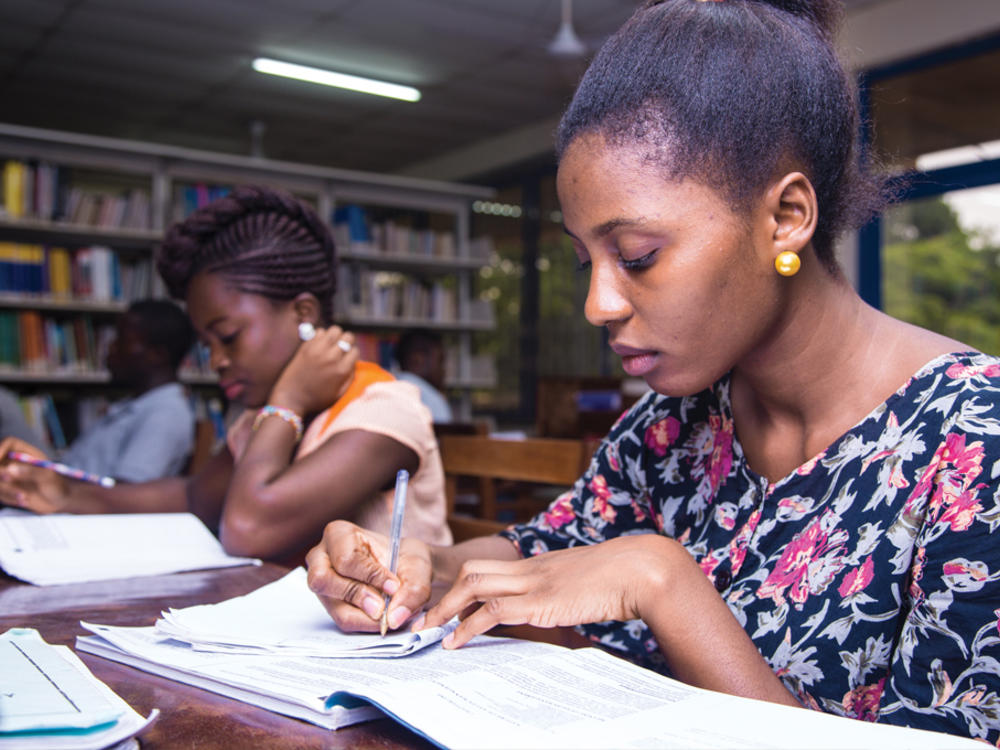The University of Cape Coast is the first University in West Africa to host the Regional Universities Forum for Capacity Building in Agriculture (RUFORUM) Annual General Meeting (AGM), the Pro Vice-Chancellor, Prof. Dora Edu-Buandoh has stated.
This follows RUFORUM’s strategic geographical expansion in 2014 to include Universities in Benin, Côte d'Ivoire, Ghana, Liberia, Mali, Nigeria, Togo, Sierra Leone and Senegal.
The 15th AGM to be hosted by UCC from December 2-6, 2019 is on the theme “Delivering on Africa’s Universities Agenda for Higher Agricultural Education, Science, Technology and Innovation (AHESTI): What will it take?
Addressing the media at a Press Conference at the International Press Conference in Accra, the Pro Vice-Chancellor, Prof. Dora Edu-Buandoh, announced that the AGM would bring an assembly of about 400 delegates including Ministers of Agriculture and Education and their respective Permanent Secretaries, Vice-Chancellors, Principals and Deans, partners and Heads of development institutions, private sector leaders, farmers and farmer representatives, emerging and early career researchers and young entrepreneurs from especially Ghana and other West African countries. She noted that universities, private sector actors and young entrepreneurs shall have the opportunity to showcase their innovations, products and services, network and broker partnerships with one another.
Prof. Edu-Buandoh said the 15th AGM would coincide with RUFORUM’s 15th-anniversary celebration, a year after the ratification of RUFORUM Vision 2030 Strategy and its Five-year Operational Plan (2018-2022). “During this AGM, RUFORUM will reflect and learn from its programme implementation, and concretise on the directions and strategies for the realisation of RUFORUM Vision 2030 Strategy” she explained.
Relevance of RUFORUM AGM
Explaining the relevance of the AGM, the Pro Vice-Chancellor indicated that Africa’s efforts to attain sustainable and inclusive economic growth and development as enshrined in the Agenda 2063 and the global Agenda 2063 was at heightened levels. Accordingly, she said Universities in Africa have an immense responsibility to translate these aspirations into products, services and competitive innovations adding that “Higher education institutions are therefore at the centre of these processes in science, technology and innovation”. She further stated that “Africa’s Universities Agenda for Higher Agricultural Education, Science, Technology and Innovation (AHESTI) provides an operational framework for delivering espoused contributions of higher education to Africa’s transformation. Universities in Africa that will convene in Ghana will have the opportunity to deliberate on what it will take to translate the AHESTI framework into reality as part of unlocking the innate potential of Africa’s higher education institutions”.
Activities
As part of activities for the AGM, she indicated that RUFORUM would recognise farmers that have made significant contributions to agricultural transformation in Ghana as part of supporting national efforts for the advancement and transformation of agriculture. “RUFORUM shall also recognise scientists and other actors that have made significant contributions and supported the advancement of excellence in research and higher education for the development of Africa” she added. Also, she said Young Innovators and Entrepreneurs from West Africa would be recognised as part of promoting the contribution of the youth to economic growth and development of Africa and the need to provide youth with a platform to demonstrate their potential.
According to her, a number of Pre-AGM side events including Post-Doctoral fellows training, targeted skill enhancement training for University Principals and Deans, would feature as part of the event. In addition to these, there would be Leadership and Management training for the Forum for Women Vice-Chancellors in Africa (40 Vice-Chancellors), Social media training for students from RUFORUM member universities in Ghana, a learning event on indigenous chicken production in Africa and a business and entrepreneurship training by the UCC School of Business for Young Innovators and Entrepreneurs.
Opening of the AGM
The Local Organising Chairman, Prof. Livingstone Sam-Amoah, said the AGM would officially be opened by the President of Ghana, His Excellency, Nana Addo Dankwa Akufo-Addo. He noted that UCC was the first University in Ghana to join RUFORUM adding that the University of Ghana and the University for Development Studies were also members, however, Kwame Nkrumah University of Science and Technology and the University of Education Winneba, were in the process of becoming members of RUFORUM. “UCC is, therefore, hosting the 15th AGM in collaboration with these Universities as well as the Centre for Scientific into Research” he noted.
Prof Sam-Amoah who is also the immediate past Provost of the College of Agriculture and Natural Sciences said some of the keynote speakers for the AGM are the Minister of Education, Hon. Dr. Mathew Prempeh; Commissioner, AUC, H.E. Josefa Leonel; PLO Lumumba, Minister of Higher Education, Namibia, Dr Itah Kandjii-Murangi; Minister of Education, Liberia, Hon. Prof. Ansu Dao Sonii among others.
About RUFORUM
RUFORUM was established by 10 African university Vice-Chancellors in 2004. The organisation is a consortium of 105 African universities operating in 37 countries on the continent with a vision to create “vibrant transformative universities to catalyse sustainable inclusive agricultural development to feed and create prosperity for Africa”. RUFORUM Secretariat is hosted by the Ministry of Education and Sports in Uganda with Secretariat at Makerere University in Kampala. In 2014, RUFORUM signed an MoU with the African Union Commission to support the implementation of the Science, Technology and Innovation Strategy for Africa (STISA 2024) Priority One on reducing poverty and ensuring food and nutrition security. As of August 2017, RUFORUM has supported the training of 60 undergraduates, 1,883 MSc and 503 PhD graduates of whom, 94% work in their home countries or region, generated over 300 agricultural technologies and mobilized over US$201 million for strengthening postgraduate education in Africa.




